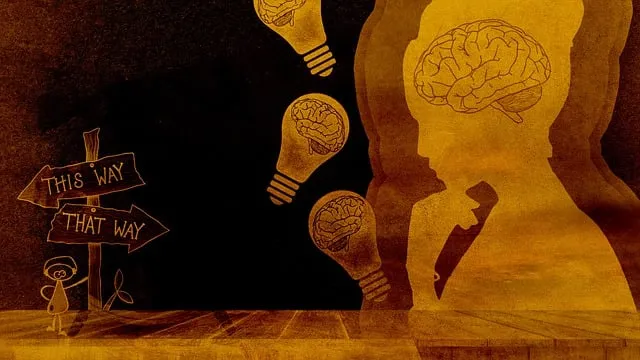Cultural competency is vital for high-quality psychiatric care in diverse communities, as demonstrated by the Parker Kaiser Permanente (PKP) model. PKP revolutionizes training for healthcare providers by integrating education, practice, and support with a focus on navigating cultural complexities. Through interactive methods, providers learn to address unconscious bias, improve communication, and cater to diverse patient needs—from language barriers to unique cultural therapeutic practices. This comprehensive approach enhances treatment outcomes, increases patient satisfaction, and fosters an inclusive healthcare system, especially for emotional regulation issues within various communities. The impact of such training is evident in improved provider engagement, better patient relationships, and enhanced clinical outcomes in PKP psychiatry services.
Healthcare provider cultural competency training is an essential aspect of modern psychiatric care, aiming to bridge the gap between diverse patient populations and culturally sensitive treatment. This article explores the critical need for such training, highlighting innovative models like the Parker Kaiser Permanente approach. We delve into key components, challenges, and benefits, emphasizing the importance of continuous learning for healthcare providers in psychiatry. By evaluating the impact on patient care, we aim to showcase effective cultural competency programs, drawing insights from successful initiatives, including the Parker Kaiser Permanente model, specifically tailored for psychiatry.
- Understanding Cultural Competency in Healthcare: A Necessity in Modern Psychiatry
- The Parker Kaiser Permanente Model: An Approach to Comprehensive Training
- Key Components of Effective Cultural Competency Training Programs
- Challenges and Benefits for Healthcare Providers: A Case for Continuous Learning
- Measuring Success: Evaluating the Impact of Cultural Competency Training on Patient Care
Understanding Cultural Competency in Healthcare: A Necessity in Modern Psychiatry

In today’s diverse healthcare landscape, cultural competency is no longer a nice-to-have but an essential component of quality patient care, especially within psychiatric services like Parker Kaiser Permanente psychiatry. Understanding and appreciating the cultural nuances of patients and communities allows healthcare providers to offer more personalized and effective treatments. This approach recognizes that mental health issues often intersect with cultural identities, socioeconomic factors, and unique experiences, which can significantly influence a person’s journey towards self-esteem improvement and coping skills development.
Healthcare provider cultural competency training equips professionals with the knowledge and skills to navigate these complexities. It involves learning about different cultural beliefs, values, practices, and communication styles to build bridges between healthcare systems and diverse patient populations. Such training is pivotal in fostering an inclusive environment where patients feel heard, respected, and understood, ultimately enhancing treatment adherence and outcomes. By embracing cultural competency, Parker Kaiser Permanente psychiatry can ensure that its services are accessible, responsive, and beneficial to all individuals seeking support for their mental well-being.
The Parker Kaiser Permanente Model: An Approach to Comprehensive Training

The Parker Kaiser Permanente Model offers a comprehensive approach to healthcare provider training, focusing on cultural competency and improving patient outcomes, particularly in psychiatry. This model integrates education, clinical practice, and support services to address the diverse needs of patients from various cultural backgrounds. By fostering an environment that encourages empathetic understanding and effective communication, it aims to enhance the delivery of mental health care, including depression prevention, anxiety relief, and trauma support services.
This innovative training program incorporates interactive workshops, case studies, and real-world scenarios to equip healthcare providers with the skills needed to navigate cultural complexities. The model’s structured curriculum covers topics such as unconscious bias, cultural awareness, and adaptive communication strategies, ensuring that providers can offer tailored care that respects individual differences and promotes better health outcomes.
Key Components of Effective Cultural Competency Training Programs

Effective cultural competency training programs for healthcare providers are multifaceted and inclusive. They should begin by equipping participants with a deep understanding of their own cultural biases, assumptions, and privileges. This introspection is crucial for recognizing how personal experiences shape interactions with patients from diverse backgrounds. Interactive workshops, case studies, and role-playing scenarios facilitate this process, enabling professionals to practice navigating complex cultural situations.
Moreover, these training programs must delve into the impact of culture on mental health and specifically address issues relevant to the population served by organizations like Parker Kaiser Permanente psychiatry. Topics such as trauma, access to care, language barriers, and culturally specific therapeutic practices should be explored. Integrating self-care practices, burnout prevention strategies, and positive thinking techniques can further enhance these programs’ effectiveness, ensuring healthcare providers remain resilient and empathetic in their work.
Challenges and Benefits for Healthcare Providers: A Case for Continuous Learning

Healthcare providers face significant challenges when interacting with patients from diverse cultural backgrounds. Language barriers, differing healthcare beliefs, and unconscious biases can hinder effective communication and treatment. For instance, a study by Parker Kaiser Permanente’s psychiatry department highlighted the need for more culturally sensitive practices, especially in understanding and addressing emotional regulation issues unique to various communities.
Continuous learning is essential to overcoming these challenges. Training programs that emphasize cultural sensitivity in mental healthcare practice, such as those incorporating Mind Over Matter Principles, can empower providers to navigate complex patient interactions. By fostering emotional intelligence and a deeper understanding of diverse cultural perspectives, healthcare providers become better equipped to offer compassionate care. This not only benefits individual patients but also contributes to creating a more inclusive and equitable healthcare system overall.
Measuring Success: Evaluating the Impact of Cultural Competency Training on Patient Care

Evaluating the impact of cultural competency training on patient care is paramount to assessing its success. At Parker Kaiser Permanente psychiatry, researchers have employed various methods to gauge how this training translates into improved outcomes for both patients and mental health professionals. One key metric is patient satisfaction scores, which have shown consistent increases post-training, indicating enhanced cultural understanding and empathy among healthcare providers.
Moreover, the implementation of Emotional Well-being Promotion Techniques and Risk Management Planning for Mental Health Professionals has been linked to better engagement and adherence in treatment plans. By fostering a more inclusive environment, these initiatives contribute to smoother emotional healing processes, ultimately reflecting improved clinical outcomes and stronger patient-provider relationships.
Cultural competency training in healthcare, particularly within psychiatry, is no longer a choice but an imperative. As diverse patient populations become the norm, healthcare providers must be equipped with the knowledge and skills to deliver culturally sensitive care. The Parker Kaiser Permanente model offers a comprehensive framework that can be adapted for various settings. By focusing on key components like intercultural communication, community engagement, and self-reflection, these training programs empower providers to overcome challenges and reap benefits for both patients and practitioners. Continuous evaluation, such as measuring the impact on patient care, ensures these initiatives remain effective and relevant in modern psychiatry.



